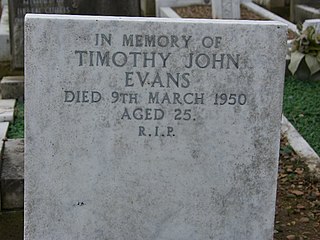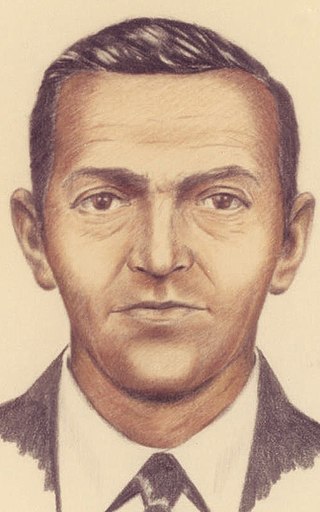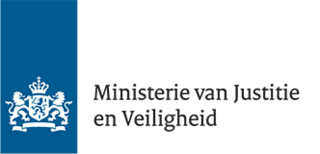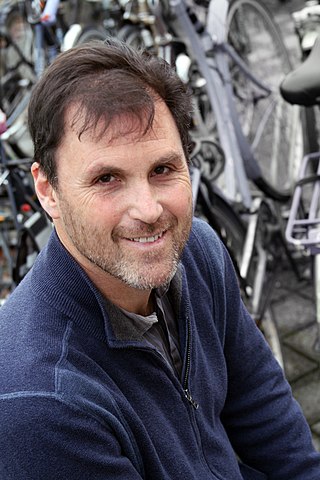Volkert van der Graaf is a Dutch convicted murderer who assassinated politician Pim Fortuyn, the leader of the Pim Fortuyn List (LPF) party, on 6 May 2002. Van der Graaf shot Fortuyn outside a radio studio in Hilversum shortly after Fortuyn gave an interview during the political campaign for the Dutch general election of 2002. An environmental and animal rights activist, Van der Graaf stated at his trial that he killed Fortuyn to stop him from exploiting Muslims as "scapegoats" and targeting "the vulnerable sections of society" in seeking political power. Van der Graaf was arrested shortly after shooting Fortuyn, who died immediately.

Forensic psychiatry is a subspeciality of psychiatry and is related to criminology. It encompasses the interface between law and psychiatry. According to the American Academy of Psychiatry and the Law, it is defined as "a subspecialty of psychiatry in which scientific and clinical expertise is applied in legal contexts involving civil, criminal, correctional, regulatory, or legislative matters, and in specialized clinical consultations in areas such as risk assessment or employment." A forensic psychiatrist provides services – such as determination of competency to stand trial – to a court of law to facilitate the adjudicative process and provide treatment, such as medications and psychotherapy, to criminals.

A miscarriage of justice occurs when an unfair outcome occurs in a criminal or civil proceeding, such as the conviction and punishment of a person for a crime they did not commit. Miscarriages are also known as wrongful convictions. Innocent people have sometimes ended up in prison for years before their conviction has eventually been overturned. They may be exonerated if new evidence comes to light or it is determined that the police or prosecutor committed some kind of misconduct at the original trial. In some jurisdictions this leads to the payment of compensation.
In the law of criminal evidence, a confession is a statement by a suspect in crime which is adverse to that person. Some secondary authorities, such as Black's Law Dictionary, define a confession in more narrow terms, e.g. as "a statement admitting or acknowledging all facts necessary for conviction of a crime," which would be distinct from a mere admission of certain facts that, if true, would still not, by themselves, satisfy all the elements of the offense. The equivalent in civil cases is a statement against interest.

A facial composite is a graphical representation of one or more eyewitnesses' memories of a face, as recorded by a composite artist. Facial composites are used mainly by police in their investigation of crimes. These images are used to reconstruct the suspect's face in hope of identifying them. Facial reconstruction can also be used in archeological studies to get a visualization of ancient mummies or human remains.

The Ministry of Justice and Security is the Dutch ministry responsible for justice, imprisonment and public security. The ministry was created in 1798 as the Department of Justice, before it became in 1876 the Ministry of Justice. In 2010, it took over the public safety duties from the Ministry of the Interior and Kingdom Relations and became Ministry of Security and Justice. In 2017 the ministry was renamed to Ministry of Justice and Security. The ministry is headed by the Minister of Justice and Security, David van Weel (NSC) since 2 July 2024.

Vladimir Petrovich Serbsky was a Russian psychiatrist and one of the founders of forensic psychiatry in Russia. The author of The Forensic Psychopathology, Serbsky thought delinquency to have no congenital basis, considering it to be caused by social reasons.

Forensic psychotherapy is the application of psychological knowledge to the treatment of offender-patients who commit violent acts against themselves or others. This form of treatment allows for a therapist to potentially understand the offender and their mental state. It gives the individual providing treatment the opportunity to examine further whether the offender’s criminal behavior was a conscious act or not, what exactly their association with violent behavior is, and what possible motives could have driven them. The discipline of forensic psychotherapy is one that requires the involvement of individuals other than simply the therapist and patient. A therapist may collaborate with other professionals, such as physicians, social workers, nurses and other psychologists in order to best serve the offenders’ needs. Whether the treatment is successful or not relies on a multitude of things, but typically ensuring that a systemic approach is taken and that all involved in the treatment process are well informed and supportive has proven to be the most effective. In addition to group work forensic psychotherapy may also involve therapeutic communities, individual interaction with victims as well as offenders, and family work. In order for this specialized therapy to be as effective as possible, it demands the compliance of not only the patient and therapist, but of the rest of society as well. The main focus of forensic psychotherapy is not to condone the acts of the offender, but to obtain a psychodynamic understanding of the offender in order to attempt to provide them with an effective form of treatment to help them take responsibility for any crimes committed and to prevent the perpetration of crimes by the offender in the future. Guidelines have been set to ensure proficiency in the field of Forensic Psychology.

Pre-trial detention, also known as jail, preventive detention, provisional detention, or remand, is the process of detaining a person until their trial after they have been arrested and charged with an offence. A person who is on remand is held in a prison or detention centre or held under house arrest. Varying terminology is used, but "remand" is generally used in common law jurisdictions and "preventive detention" elsewhere. However, in the United States, "remand" is rare except in official documents and "jail" is instead the main terminology. Detention before charge is commonly referred to as custody and continued detention after conviction is referred to as imprisonment.
A psychiatric assessment, or psychological screening, is the process of gathering information about a person within a psychiatric service, with the purpose of making a diagnosis. The assessment is usually the first stage of a treatment process, but psychiatric assessments may also be used for various legal purposes. The assessment includes social and biographical information, direct observations, and data from specific psychological tests. It is typically carried out by a psychiatrist, but it can be a multi-disciplinary process involving nurses, psychologists, occupational therapist, social workers, and licensed professional counselors.
Eyewitness testimony is the account a bystander or victim gives in the courtroom, describing what that person observed that occurred during the specific incident under investigation. Ideally this recollection of events is detailed; however, this is not always the case. This recollection is used as evidence to show what happened from a witness' point of view. Memory recall has been considered a credible source in the past, but has recently come under attack as forensics can now support psychologists in their claim that memories and individual perceptions can be unreliable, manipulated, and biased. As a result of this, many countries, and states within the United States, are now attempting to make changes in how eyewitness testimony is presented in court. Eyewitness testimony is a specialized focus within cognitive psychology.
Slavko Ziherl was a Slovenian specialist in psychiatry.

Nieuw Vosseveld is a prison in Vught, Netherlands, part of the Custodial Institutions Agency of the Ministry of Justice and Security within the Dutch criminal justice system. Penitentiaire Inrichting Vught is now the general term used instead of Nieuw Vosseveld. Part of Nieuw Vosseveld is a maximum security prison; it holds some of Europe's most dangerous criminals, including Mohammed Bouyeri and Ridouan Taghi.
Rape investigation is the procedure to gather facts about a suspected rape, including forensic identification of a perpetrator, type of rape and other details.
Political abuse of psychiatry, also commonly referred to as punitive psychiatry, is the misuse of psychiatry, including diagnosis, detention, and treatment, for the purposes of obstructing the human rights of individuals and/or groups in a society. In other words, abuse of psychiatry is the deliberate action of having citizens psychiatrically diagnosed who need neither psychiatric restraint nor psychiatric treatment. Psychiatrists have been involved in human rights abuses in states across the world when the definitions of mental disease were expanded to include political disobedience. As scholars have long argued, governmental and medical institutions code menaces to authority as mental diseases during political disturbances. Nowadays, in many countries, political prisoners are sometimes confined and abused in psychiatric hospitals.
The Amsterdam sex crimes case is a court case involving Robert Mikelson's abuse of babies in Amsterdam, the Netherlands. The defendant Mikelson, dubbed "the Monster of Riga" by the Dutch press, had worked at several daycare centres in Amsterdam and was accused of abusing 87 children as well as possession, production and distribution of child pornography. Mikelson was found guilty and sentenced to 18 years and 11 months in prison, followed by involuntary commitment.

David Philip Bernstein was professor of forensic psychotherapy at Maastricht University in the Netherlands, an endowed chair jointly sponsored by Forensic Psychiatric Center "de Rooyse Wissel". His work is also supported by the Expertise Center for Forensic Psychiatry (EFP). At Maastricht University, Bernstein leads the forensic psychology section, which is embedded within the department of clinical psychological science. Bernstein has served as President of the Association for Research on Personality Disorders, Vice President of the International Society for the Study of Personality Disorders and Vice President of the International Society for Schema Therapy.
Involuntary commitment or civil commitment is a legal process through which an individual who is deemed by a qualified agent to have symptoms of severe mental disorder is detained in a psychiatric hospital (inpatient) where they can be treated involuntarily.

15-year-old Nicole van den Hurk disappeared on 6 October 1995 in Eindhoven, the Netherlands. Her body was found in the woods between Mierlo and Lierop on 22 November.
Baan is a Dutch surname with a variety of origins. Variant forms are Baans, Baen, De Baan, De Baen and Van der Baan. It can be patronymic, where Baan or Bane may be, among others, a short form of Urbanus. Alternatively, given that Dutch baan can mean "lane" or "track", it may be a toponymic or metonymic occupational surname, referring e.g. to a kaatser or road maker. People with this name include:









